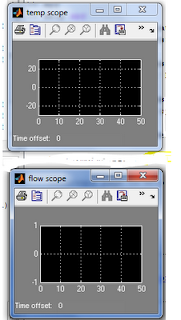Creating a basic GUI
in Java using NetBeans IDE 7.1
1.
Creating a Project:
In NetBeans:
Click on Next.
Do as shown and click the Finish button.
1. Building the Front End
Now we create a Java container using JFrame
component and place the container in a new package. Follow the steps:
Right Click on the SulavGUI, in the Projects
window as shown below.Click New->Other…
In Categories,
select “Swing GUI Forms”
In
File Types, select “JFrame Form”.
Now
click on Next.
Click
on Finish.
See the Palette in the Right of the
monitor. If it is not available, then
press [Ctrl]+[Shift]+[8] at once.
From this palette, drag and drop the
following items into the container (or form, idk):
i)
1 Panel
ii)
3 Label
iii)
3 TextField
iv) 3 Button
At first
drag the Panel, and position it as shown. Now place the jLabels1, 2, 3
jTextField1,2,3 and jButton1,2 inside it. Place jButton3 outside the Panel.
Make it look like image shown below:
Press the [-] sign in the title bar of the Palette to minimize
the Palette window, and click the [double-square] sign for the Properties shown
by the 2 blue arrows to restore it or make it visible.
Now click on jLabel1 in the GUI Design Window,
Now
in the text field in the Properties window, change jLabel1 to Number 1.
Similarly change the text for jLabel2, jLabel3 to Number 2 and Solution
respectively.
Also
change the Text of the 3 buttons to make as shown below.
Click
on the jTextField1 and delete the text in it, resize the field if it reduces in
size while deleting. Do the same for jTextField2 and jTextField3.
Now
your looks of GUI is ready. Now let’s give functionality to it, aka brain.
Now
Right Click on the Exit Button, and do:
Events->Action->actionPerformed
Your insertion pointer reaches to the point shown below:
In
the place of “//TODO add your handling code here:”, type:
Go to Design view, by pressing the Design tab as
shown:
Similary,
for Add button add the following lines of code:
num1=Float.parseFloat(jTextField1.getText());
num2=Float.parseFloat(jTextField2.getText());
result=num1+num2;
jTextField3.setText(String.valueOf(result));
and
for Clear button add the following:
jTextField1.setText("");
jTextField2.setText("");
jTextField3.setText("");
as
shown below:
Now your
simple GUI is ready. Click on the Run button to run the main project.
This
is the place where your platform independent, portable, secure, standalone
application is present.
Happy
Coding
Sulav
























